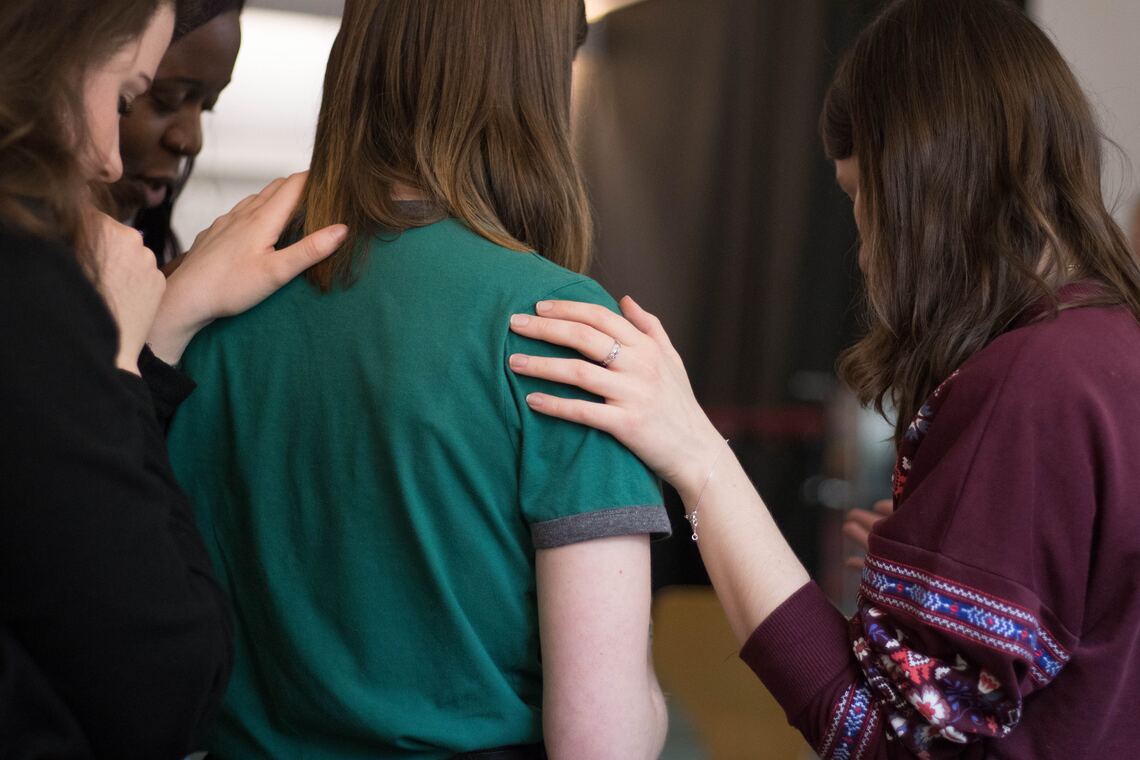Image credit: Rosie Fraser, Unsplash
It’s hard to know what to say or do when a friend has lost someone they love. You might be scared you’ll say the wrong thing and make your friend feel worse. You might feel uncomfortable at the thought of seeing your friend in pain.
What’s important to remember is that there are no perfect words you can say and no perfect things you can do to make your friend feel better. You can’t fix what's happened, and no one expects you to. What you can do, though, is simply be there for them. Your friend has already lost someone important to them, and it will be even harder for them if others avoid them because they feel awkward.
Some ideas for supporting a friend
It’s fine to say, “I don’t know what to say”
There are no magic words which will help someone who is suffering a huge loss feel better. You can even tell them you don’t know what to say, or just tell them, “I’m sorry.” The most important thing is just to be present for them, ideally in person but, if that's not possible, on the phone.
Speak less and listen more
Listening is probably the most under-rated gift we have to offer each other as humans. Trying to find the right words is far less important than just sitting quietly and letting your friend express their feelings about their loss.
It's OK if they cry
It can be awkward seeing a friend cry, but crying is a very important part of the healing process so don’t try to stop them. It’s OK not to say anything while someone is crying, just sit it out, giving them a reassuring touch occasionally to let them know you are there. It’s also OK if someone doesn’t cry – everyone handles grief differently.
Image credit: Julie Johnson, Unsplash
Be true to your friendship
There’s no reason why the way you used to be with each other should change. Yes, things are going to feel very different for a while, but if you and your friend had lots of jokes together it’s fine for that to continue when it feels right; in fact, it's more than fine, it's healthy and necessary. There will be time when your friend not only wants to but needs to laugh. It’s important for them to know that all happiness has not gone forever from their life.
Try not to make comparisons
Telling someone: "My nan died when I was three, so I know what you're going through" or “I know how you feel because I felt the same when we lost our dog” is never going to go down well, however loved your nan or dog were. Everyone's story, everyone's pain, is theirs and theirs alone, and it's impossible to compare it to other experiences.
Stay in touch
Grief doesn't have a sell-by date, so checking in with your friend weeks, months or even years down the line is important, especially at times that might be even more difficult, such as Mother's Day, Father's Day and Christmas. Even if your friend isn’t up to seeing you regularly, keep in touch and ask them how they are.
Don't be afraid to ask what they want
If you're not sure how you can support your friend, don't be afraid to ask them. "Can I come and see you?", "Do you want to go shopping on Saturday?", "Would you rather leave it for now?" Don't push your friend if they're not ready - let them guide you.
Remember, grief can be a very long journey
Don’t expect your friend to be back to how they were in a matter of days or even months. They have lost someone they may have known their entire lives, and it can take a very long time before they feel OK again.
Helpful links
Film: Laura from Winston's Wish shares her tips for supporting a grieving friend.
Book: The Grieving Teen: A Guide for Teenagers and Their Friends
Article: How to help your friends help you - #Help2MakeSense
Download Lost, our leaflet for bereaved children and young people aged 11-18


